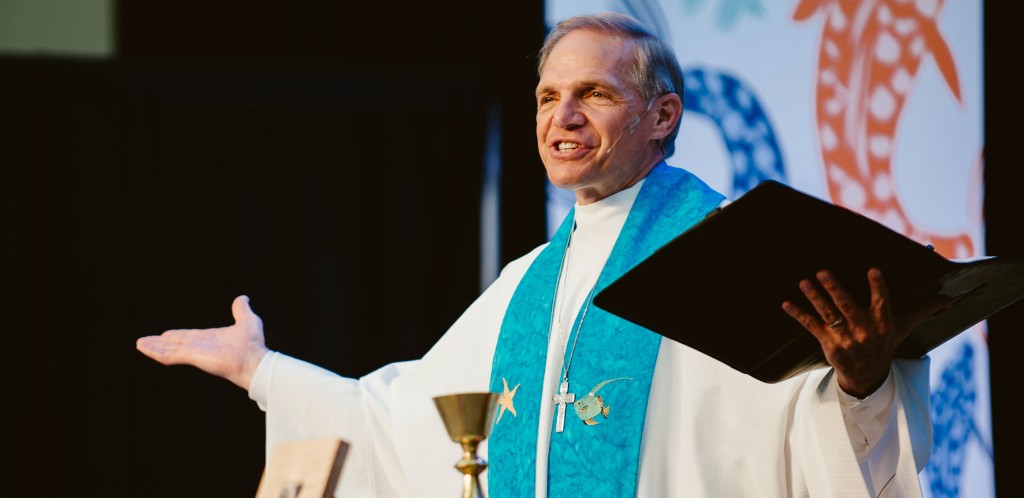Leaders are the engine that drive the train, architects that shape the path, catalysts that spark enthusiasm. The future of the church and its mission is dependent on leaders with a deep and abiding faith in Jesus Christ and a Holy Spirit passion to lead and serve God in every situation.
In April, I led a two day retreat with our clergy who will be recognized, ordained and commissioned. I was inspired by their intellect, passion to serve and lead and commitment to Christ and the church. It made me remember just how important leadership is for the church. For the next two months I want to examine not only who leaders are and what they do, but why they do it. This month, I want to elaborate on five expectations of all leaders and next month, the three types of leadership to seek and cultivate.
We have five expectations of clergy and lay leadership. These expectations are based on our understanding that leaders will move the mission forward to make disciples of Jesus Christ and grow vital congregations to transform the world. The following are our five expectations and the why behind them.
- Connect and relate well with church leadership, the congregation and community residents.
Relationships are the currency that moves the mission forward. People are at the heart of the mission and relating well is essential. The relationships leaders create are not based in friendship, although leaders should be friendly. The relationships leaders create are based in connection and respect. Sometimes in the church, leaders try to make their people happy. They do this because the church sometimes values happiness over discipleship. They are not mutually exclusive. Jesus said discipleship is putting yourself last, giving away what you have, carrying someone’s backpack the second mile, turning the other cheek, and sacrifice. These are not the things that make for happiness but make for discipleship. Connecting leadership taps into the spiritual and discipleship yearnings of people to create a path to walk together. Connecting leadership can be counted on because the leader consistently does the right thing (character) and is competent and effective in their leading (ability to lead toward positive results). Congregations that are happy but are not making progress are not being led well. Congregations that are challenged and are making progress are often being led well.
- Develop leaders within the congregation and community.
Leadership is not a solo enterprise. Leadership is the key to the future and the more competent leaders we have, the stronger the mission becomes. The best leaders make and develop the leaders around them. They are mentoring, supporting and teaching others to grow into leadership and improve their leadership. Our strongest congregations have many talented leaders and the core leaders of the church are constantly sharing leadership with others and developing new leaders. I once heard a lay person say, ‘I am using what I learn about leadership from my church in my business.’ That is making principled leaders.
- Lead the congregation to deeper faith and service in the world.
Some congregations are a mile wide and an inch deep. Jesus described these congregations in the parable of the sower. The seeds never take root because there is no depth of soil. Congregations grow deeper to grow wider and further. Depth of faith and depth of service in the world becomes contagious, inspiring and lasting.
- Increase vitality through inspiring worship and messages, attracting and making new disciples, and engaging disciples in small groups, community hands-on mission and generous giving.
The vitality of a church is developed and maintained by engaging disciples in five ministries: passionate worship, small groups, hands-on mission, generous giving and making new disciples. Increasing a congregation’s vitality expands and deepens the mission. Leaders grow the vitality of a congregation by developing leaders to lead these ministries and leading the church to organize around these ministries. To do one, two or even three well is not enough. It takes all five to grow the health and vitality of the mission.
- Raise sufficient funds for community and world mission, ongoing congregational ministry, shared ministries, salary and benefits.
The writer of Proverbs said, ‘where there is no vision, the people perish.’ The same is true for money, where there are insufficient resources, the mission dies. Leaders are called upon to raise the funds to not just sustain the mission but to help the mission flourish. Increasing the number of people who give and the amount they give is essential for the mission of the church. Giving is directly related to doing the four expectations above well.
GNJ is blessed with outstanding leaders. I call upon our leaders to grow deeper in their faith and leadership skills so that the church of Jesus Christ furthers God’s mission in the world. Dedicate yourself to God and these five expectation and God will bless the people you serve.
Keep the faith!
Bishop John Schol
The United Methodist Church
of Greater New Jersey

